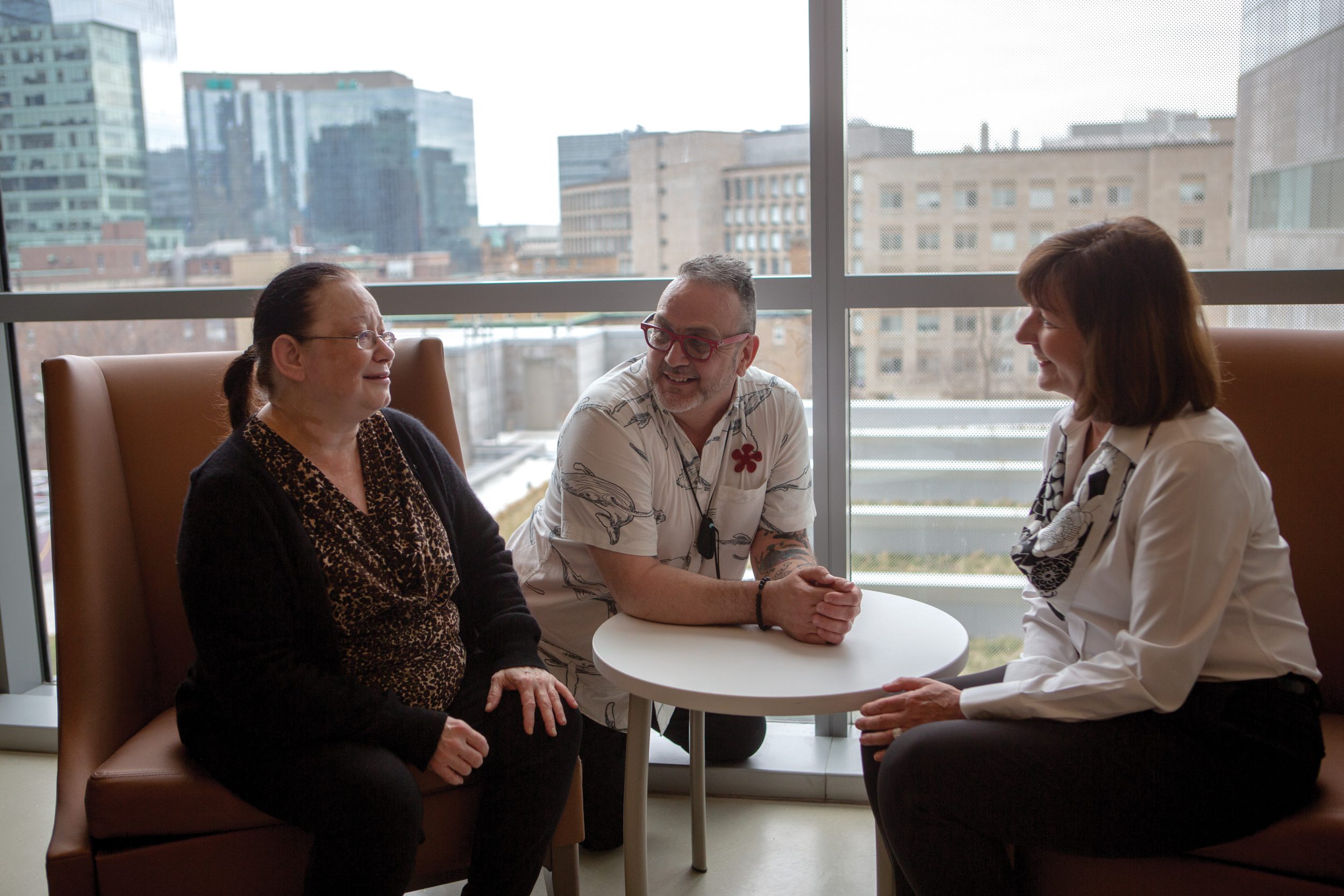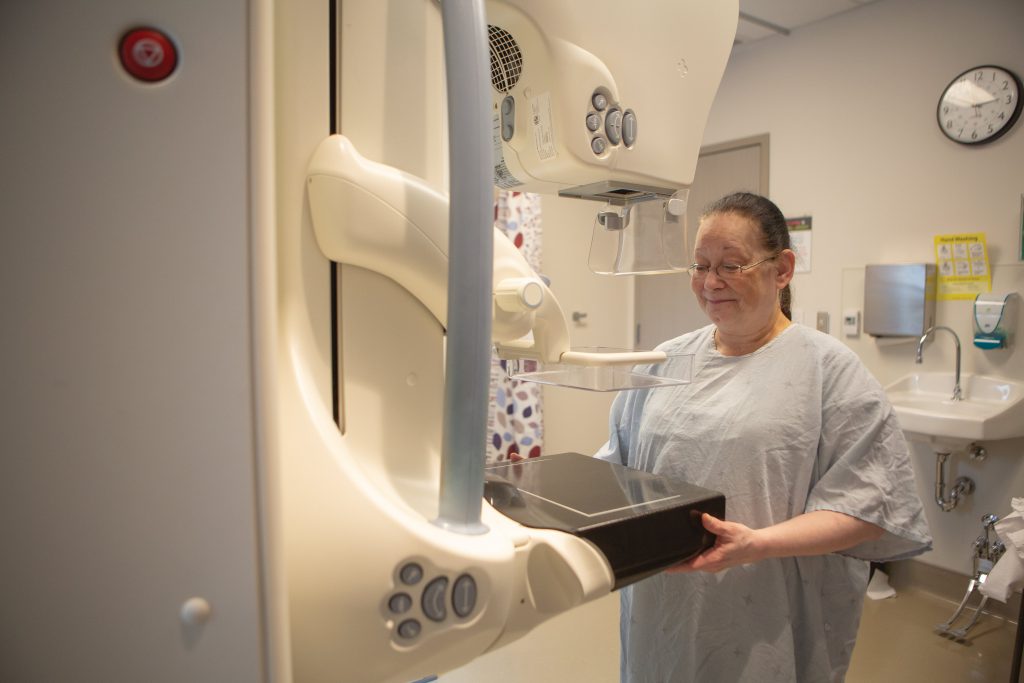

Creating a safe space for Indigenous patients to navigate their healthcare journey
Some of the most significant ongoing health disparities in Canada disproportionately affect Indigenous peoples. Indigenous women with breast cancer are more likely to be diagnosed at a later stage of disease and experience higher rates of mortality. They are less likely to access family physicians or specialist care, and are over-represented in emergency room visits.
For many Indigenous patients, experiences of stigma and discrimination steeped in a deeply rooted history of colonization make institutions like hospitals and clinics inaccessible. For others, a lack of a shared language and cultural barriers prevent them from seeking care.
“Women’s College Hospital wants to change that, and to ensure underserved and marginalized populations have access to the care they need,” says Vicky Noguera, Director of Peri-operative Services and Gynecology. “Improving access to early screening is a big part of that.”
With a view to closing the gap, Noguera and Leonard Benoit, an Indigenous Patient Navigator with the Toronto Central Regional Cancer Program, began implementing a plan to bring Indigenous women to Women’s College Hospital (WCH) for breast and cervical cancer screening. Benoit, who is Qalipu Mi’kmaq and worked as a nurse before becoming a health navigator, has found that there can be a health-literacy deficit in Indigenous communities when it comes to what certain tests mean and involve. “There can be a stigma attached to screening,” he explains. “In a lot of Indigenous cultures, there is no word for cancer, so it can be viewed as a colonized term.”
As a first step of the new program, the hospital worked collaboratively with Indigenous community members to create a culturally sensitive setting where Indigenous women would feel comfortable getting screened.
Benoit reached out to community partners to recruit patients while Noguera ensured that participating WCH staff—including physicians, the team from gynecology conducting the cervical cancer screening and breast-imaging staff—received additional training on providing healthcare to Indigenous patients.
The team also invited an Elder to open the inaugural screening day with a smudging—a traditional ceremony that consists of burning sacred medicines like sweet grass, tobacco and cedar to clear away negative energy and promote healing.
For Jean Parkin, a resident of the Native Canadian Centre of Toronto, the smudging was a special part of the day. “We connect to our ancestors every time we smudge, and get our strength for the day and for whatever we’re going through,” Parkin explains.
Parkin, who is 62 years old, participated in the screening day last December and describes the event as unique compared to past healthcare experiences. “The mere fact that it was all Indigenous, to be honest, was a real comfort for me,” she notes.

Noguera says the goal is to make the screening days a quarterly event, and to continue collaborating with Indigenous communities to create programs that meet their specific needs. This includes implementing changes throughout the hospital that signal that WCH is a safe space, such as installing Indigenous art, including materials written by Elders in the hospital’s health sciences library and offering a place for patients to smudge.
“We really want the message to get out that our hospital is a culturally sensitive place—that Indigenous patients can receive the highest level of care here,” Noguera says. “Part of that is making sure that everyone here at Women’s College Hospital understands the complex history and experiences of Indigenous peoples—as well as their strength and resilience—and to be mindful of how these dynamics affect our roles as healthcare providers.”
“We really want the message to get out that our hospital is a culturally sensitive place.”
Benoit is hoping other facilities will follow the Women’s College Hospital example.
“It would be amazing to make sure that each time folks came in for testing, we have the ability to have our medicines present, we have the ability to do our smudging, we have the ability to practice our ceremony,” he says.
Noguera adds, “We are innovating to not only create a safe space for Indigenous patients in Toronto but to create a program that can be shared with healthcare organizations across the country.”